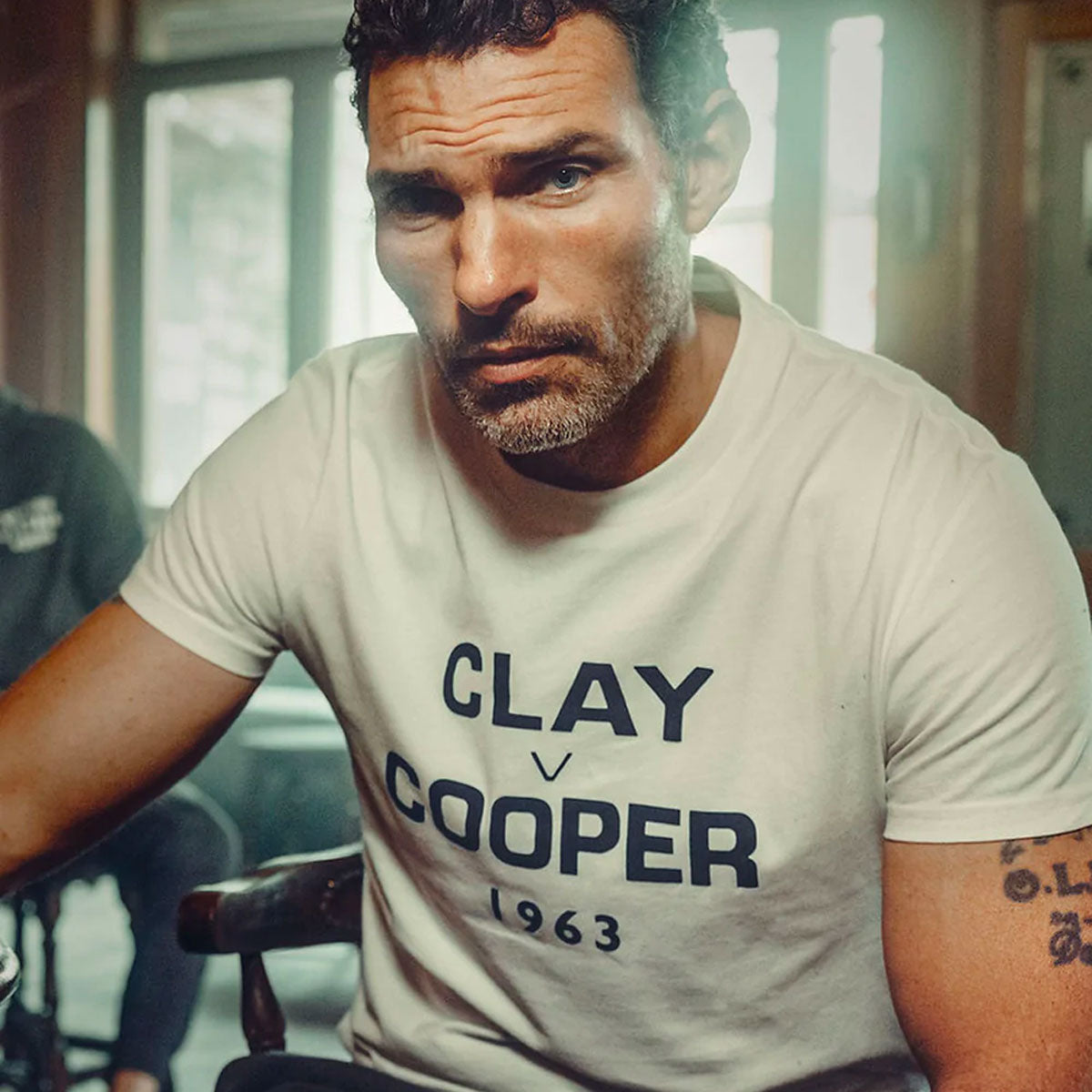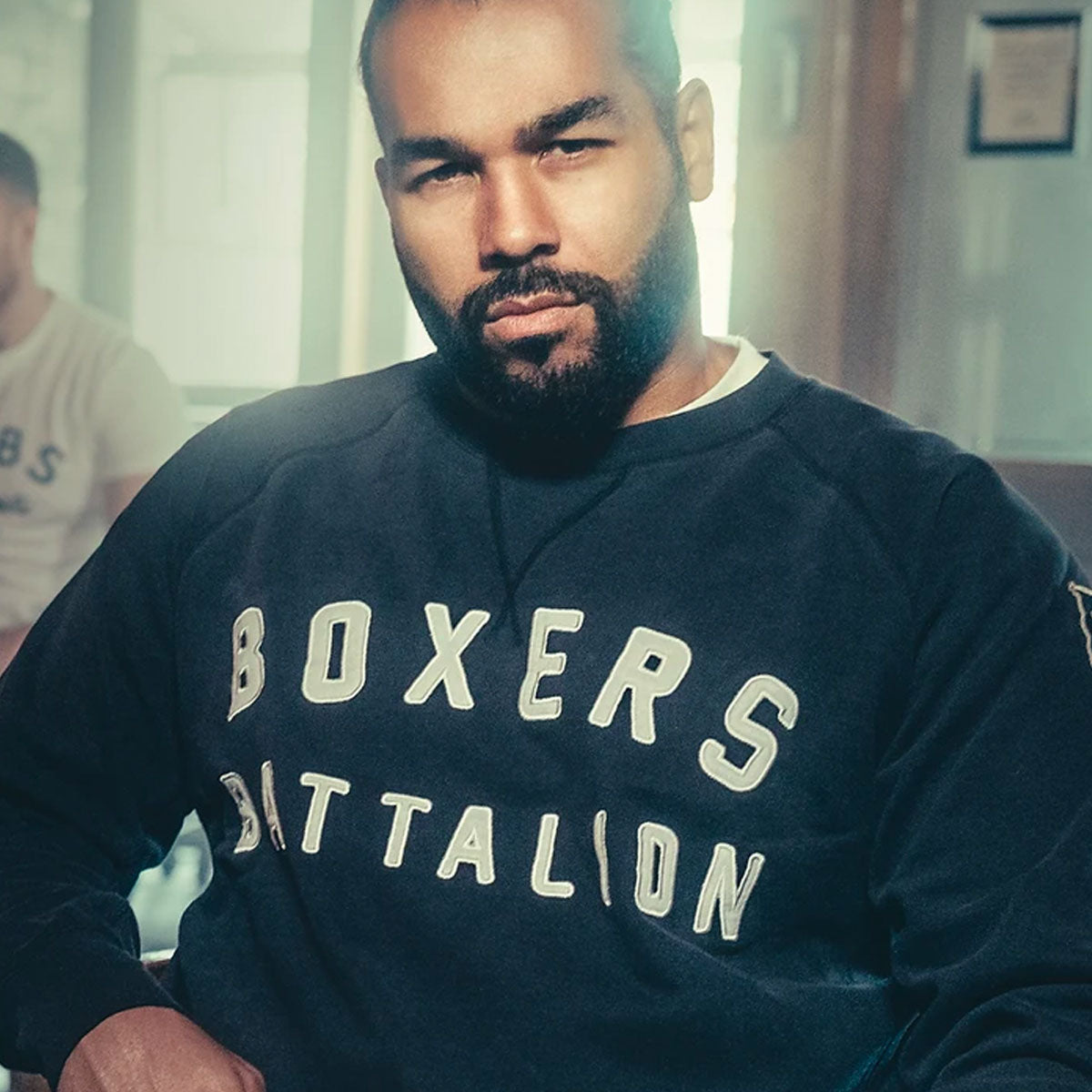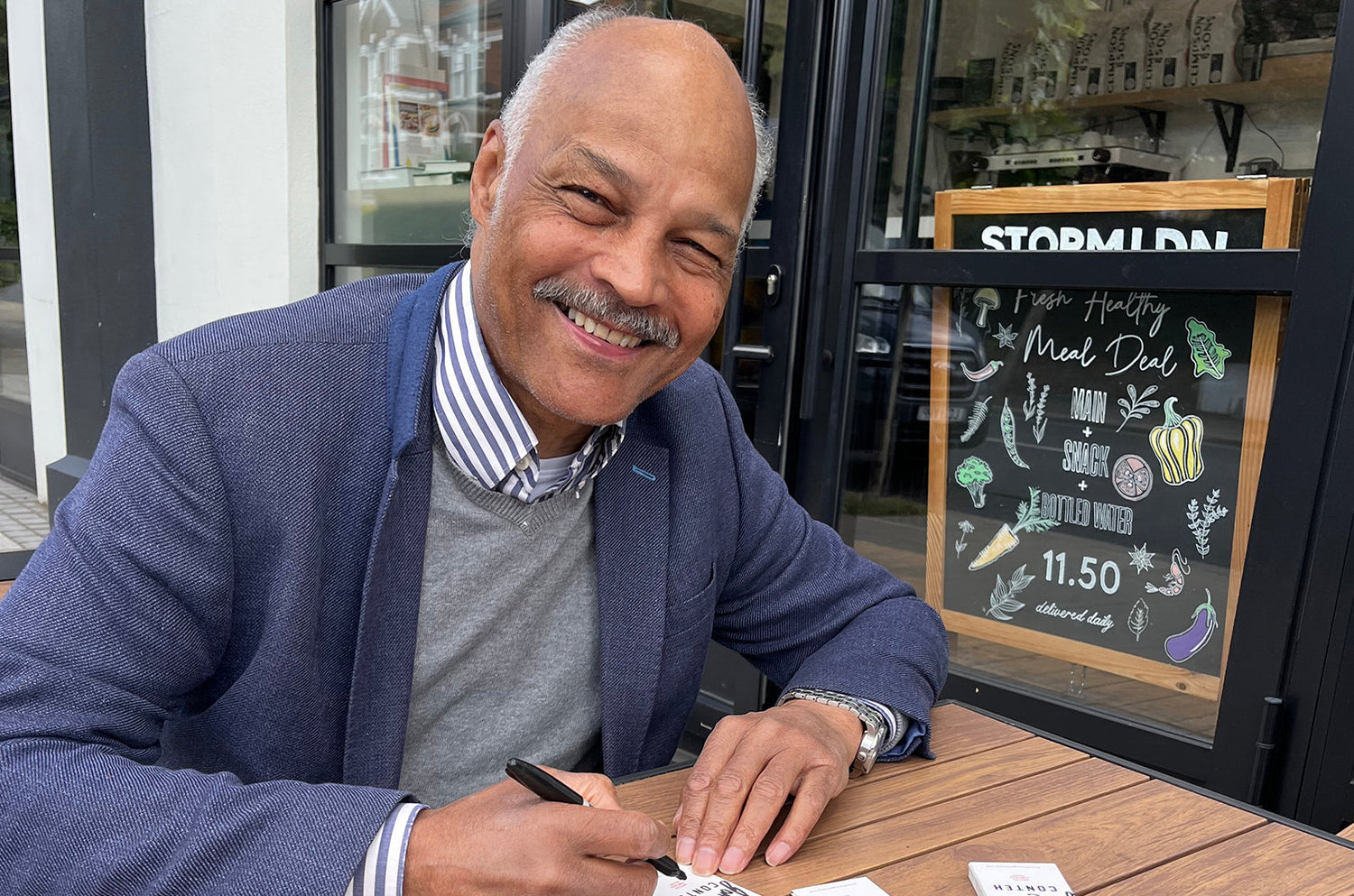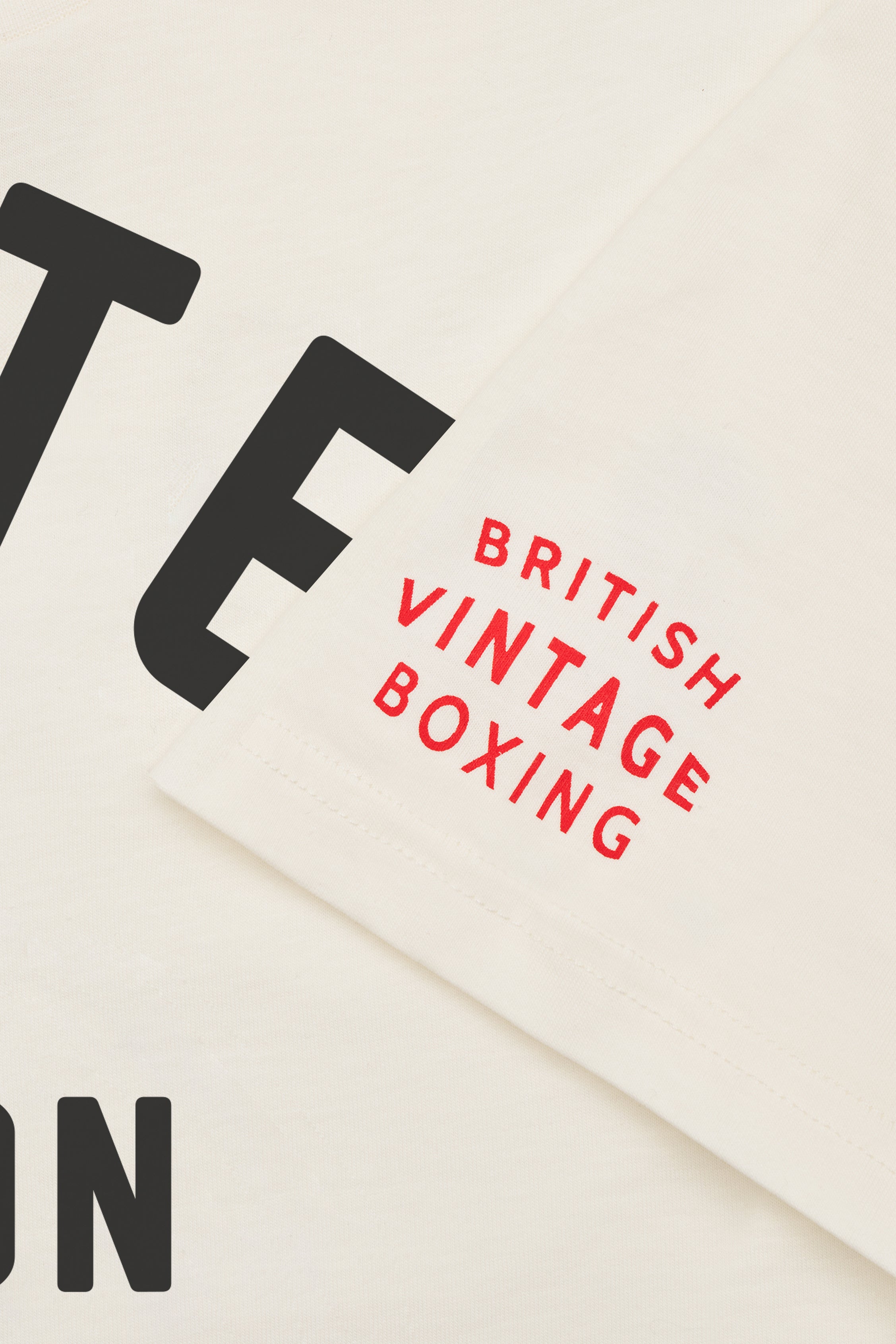Born on 27 May 1951, John Anthony Conteh is possibility Britain’s finest ever light heavyweight boxer. Son to a strict seaman from Sierra Leone and an Irish mother, he cut his teeth under the firm tutelage of his father at the age of 11. Despite his other nine siblings all showing an interest in boxing, none of them committed to the square ring and it was all down to him to be the flag bearer for the following two decades.

Conteh fought out of his local boxing club in Kirby, Merseyside and boasted 46 victories in 50 fights. However, there’s one bout which he reflected on as his ‘Learning contest.’ The 175lbs supremo recalled the time he lost the junior ABA championship in Basildon. ‘I trained, I was fit, but sometimes the occasion gets to you and I didn’t respond as positively as I should have done. Simple as that. I boxed a lad from Wolverhampton called Bobby Blower who had beaten Alan Minter in the morning and then he stopped me in two rounds in the afternoon. Bobby was a good puncher and boxer and went on to win the championships. I came back to Kirby and thought, ‘Could you have done better?’ Mentally, I needed to go through that loss in order to move forward and develop myself. Fron then on, it was total commitment.”
Conteh certainly learned a valuable lesson and took on board what to add to his own boxing toolkit. The Kirby trained boxer went on to win the middleweight senior ABA title in 1970, then gold at the Commonwealth Games, followed by the light heavyweight ABA’s in 1971. Surely, the natural progression would have been to fight in the 1972 Olympics in Munich? Conteh explained to the contrary. “I was getting offered a lot of money to turn pro, so I thought, ‘I’ll take the money, head down to London, turn pro and that was it.’ In hindsight, I wish I had gone to the Olympics.”
In the absence of supermiddleweight and cruiserweight categories, Conteh explained how his fistic journey in the pro ranks kicked off. “Light heavy was my natural fighting weight. I would have certainly moved up to cruiserweight if it existed back then, but light heavy was where I was at. Although my first 18 fights were actually billed as heavyweight contests, as I was training harder, I was actually getting lighter.”
At the ripe age of 20, Conteh turned pro on 18 October 1971 at the National Sporting Club, Café Royal, Picadilly, knocking out Okacha Boubekeur in the opening session. During his heavyweight promotion period, Conteh boxed on two Muhammad Ali cards. Did ‘The Greatest’ give him any advice as a boxer? Conteh recalled with a smile. “I was fighting an American guy called Terry Daniels when Ali fought Joe Bugner on 14 February 1973 at the Convention Centre, Las Vegas. I asked him at a press event, ‘Can you give me some advice please?’ Ali told me, ‘Yeah. Get out of my division!’ So, I did! It was good advice and I came back down to light heavy and fought for the European title.”
After 17 months as a pro, Conteh boasted a record of 17-1. The fight against the defending European light heavyweight champion from Germany, Rudiger Schmidtke, on 13 March 1973 was a stiff test. The tough German had stopped Chris Finnegan for the title in the 12th round, four months prior and had even managed to squeeze in a further three successful fights before locking horns with Conteh.
Led by George Francis, it was well documented that Conteh and his fellow fighters would be tested to their limits during training, to test their resolve. Conteh discussed the champion’s mindset. “Whatever the routine was, you just did it. If he told us to jump off a cliff or into a fire, the trick would have been how quickly you could get the doubt out of your head and just do it. We knew that whatever they were making us do, was to improve us and make us the winner. Doing things like jumping into freezing cold ponds and having to break the ice to jump into that pond, was all part of that experience to help you get beyond that crossroads of making a decision to totally commit and overcome any anxiety. Going into that fight, I had total self-belief in myself, as did my team and that’s like a lifeline. They knew what they were talking about and knew exactly what I needed to do and when to do it. Most fights are lost and won on the training ground and there’s a lot to be said for that.”
Conteh was known for his training on Hampstead Heath, where many iconic photos of him are still in circulation, such as jumping over park benches. With the fresh introduction of the John Conteh BVB t shirt, we asked the champ his thoughts on the garment printed in his honour.
“Looking at that shirt makes me think about those early morning training sessions with George Francis up in Hampstead Heath, but also jumping into the ice-cold Highgate Pond. Good times. The t shirt and the brand has brought back to life the nostalgia of that time period and I hope it does for everyone who wears it.” Click here to view the Conteh tee … https://www.britishvintageboxing.com/products/john-conteh-t-shirt
Back to Conteh’s career. Whilst winning European honours by stopping Schmidtke in the 12th round, Chris Finnegan, who fought on the undercard the same evening, beat Roy John to become the British and Commonwealth champion. With three belts between them, a domestic dust-up was inevitable. Conteh recalled the clash with his domestic foe. “He was a really tough, hard lad who had a lot of talent and was a tricky southpaw. He was one of the hardest fighters I ever fought, but similar to the Schmidtke fight, I let my natural responses take over. It wasn’t about what they’d achieved as great fighters and what they were going to do, it was all about my reaction to them. ‘What do you have to respond to that?’ is what I’d always think.” Conteh went on to win a gritty 15 round points decision against the tough Londoner, adding the British and Commonwealth straps to his European title.
By this stage, Conteh was now hitting the headlines as the next British prospect to win world honours. With age and good looks on his side, opportunities were appearing on a regular basis, with many being outside the ring. Conteh explained the time Paul McCartney contacted him. “I was from Liverpool and Paul’s people got in touch with me and said, ‘Would you like to be on the front cover of the Band on the Run album?’ I said, ‘Yeah, fantastic!’
“I went down to the recording studio in St John’s Wood and it was fantastic to be there with the biggest stars in the world, when only a couple of years before I was a hod carrier in Liverpool. Next thing, I’m on the front of a music cover alongside the likes of Christopher Lee, Michael Parkinson, Kenny Lynch and James Coburn!”

On the boxing front, Conteh went on to have a number of successful defences of his titles, moving up to 25-1 and earning the opportunity to fight for the vacant WBC world title, against tough Argentine, Jorge Victor Ahumada, on 1 October 1974. The Liverpool born boxer recalled his greatest night in the square ring, gaining victory over 15 gruelling rounds. “He was the hardest fighter I’d fought. When I hit him early on, I knew I was going to be there all night. He was a tough, rugged, experienced fighter, but thankfully, I had a great training regime and I had a full tank of petrol to respond. I knew my fitness wasn’t going to let me down, if anything, in the last few rounds, the harder it got, the fitter I got. As my body got pushed harder, my endorphins got released, but they only get released if you’ve been practicing to be pushed to your limits on the training ground, which I had. Whatever Ahumada had in the tank that night, I knew I could match him.”
Conteh’s first two defences of his title were against American, Lonnie Bennett (23-2) and Mexican, Yaqui Lopez. Kirkby’s golden boy stopped Bennett in five rounds and took a comfortable points decision over 15 rounds with Lopez, before having the opportunity to defend his title in his backyard of Liverpool against American, Len Hutchins on 5 March 1977. “To be back in Liverpool, where I started, was great. It’s what every fighter dreams of. It was a fantastic, big ring, which suited me as a boxer. For a smaller fighter, like a Marciano, a smaller ring would be better, but as a boxer, you want room to move around to give you that space to throw the shots. As far as the fight goes, there was a head clash in the first round, Hutchins got cut and then I stopped him in the third.”
Indulging in a fantasy fight question, how would Conteh have managed with the Brockton Blockbuster? “I would have fought him just like Muhammad Ali would have fought him. Obviously, the fight would never have happened, because he was a pure heavyweight – not a big one, but certainly had the punching power of a heavyweight. I’m not saying I would have beat him, I’m just saying my strategy would have been to box him. I believe a great boxer will beat a great fighter, eight out of 10 times. Why? Because a great boxer is a great fighter, as they have more tools in the bag.”

Unfortunately, the year after, Conteh was stripped of his world for not going through with a mandatory defence due to being offered a low ball financial offer. Conteh reflected. “I regret doing it, of course. There’s nothing wrong with having regret though, as long as you learn from it. At the time you make decisions based on the context and that’s it. It’s in the past and the past is gone.”
On 17 June 1978, Conteh had an unsuccessful attempt to win back his world honours against Croatian, Mate Parlov, in Belgrade, then suffered two back-to-back losses against Matthew Saad Muhammad. Conteh recalled the Muhammad contests. “He was a great fighter, great puncher, great boxer and very experienced. The first fight, he was known as Matthew Franklin and then the second time he was Matthew Saad Muhammad. I was really happy to have gone the 15 rounds with him in that first one, then the second fight in Atlantic City, I was over the top, both physically and mentally. My lifestyle outside of the ring was affecting me, drinking and having a good time, which is why many boxers go into boxing in the first place! Alcoholism got a hold of me and by the grace of God, I’ve been clean since 1989.”
After a fifth round stoppage of James Dixon two months later, on 31 May 1980, Conteh hung up the gloves with a record of 34-4-1. How satisfied is Conteh with what he achieved in boxing? “I was hoping to unify the world titles and didn’t win the WBA, but I won the rest. In my life, I’ve learnt to deal with discontent and focus on positivity. Am I happy with what I achieved in boxing? Yes. Very much so.”
Shop the look

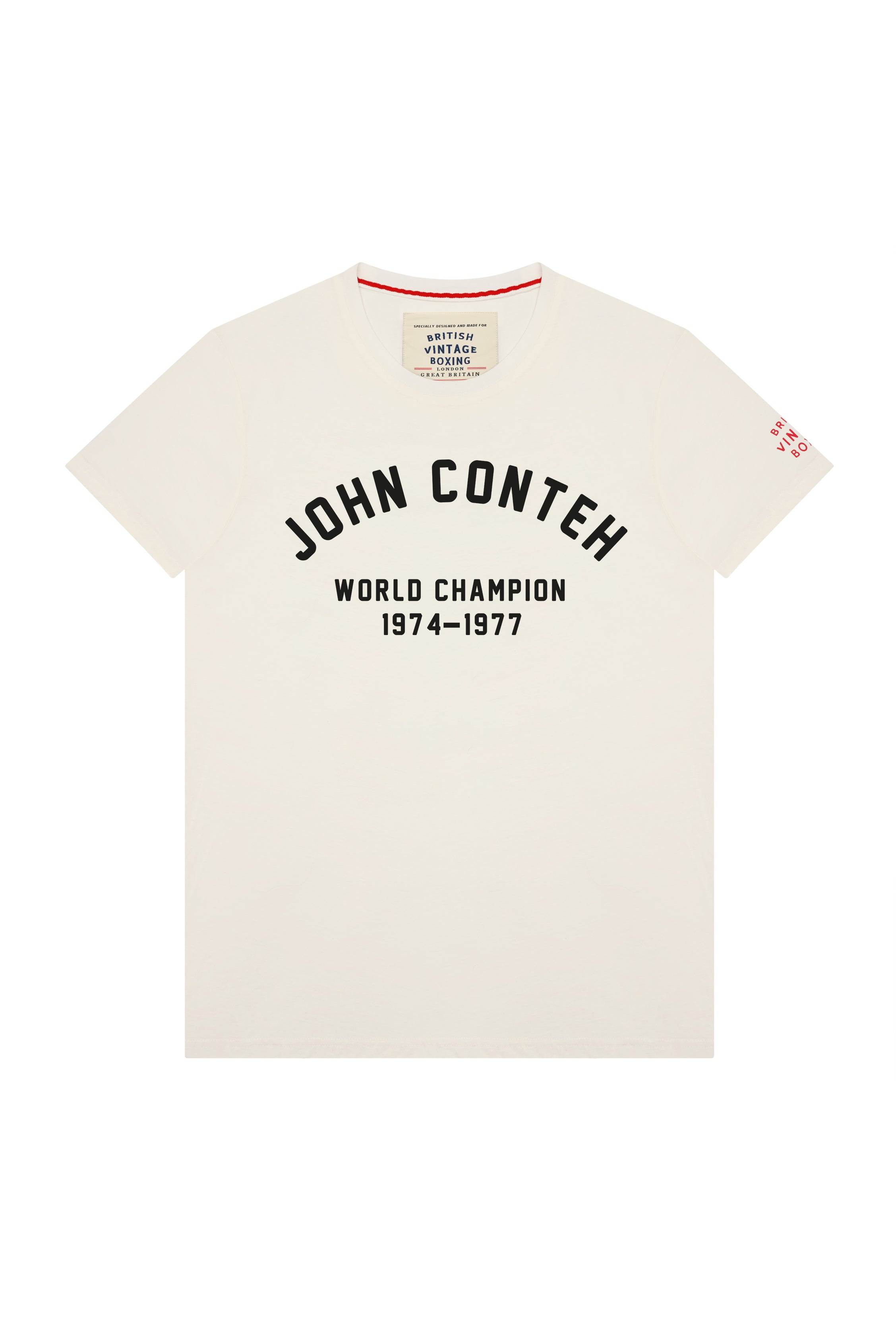
£38.00
FROM OUR BLOG
DISCOVER THE LEGENDS
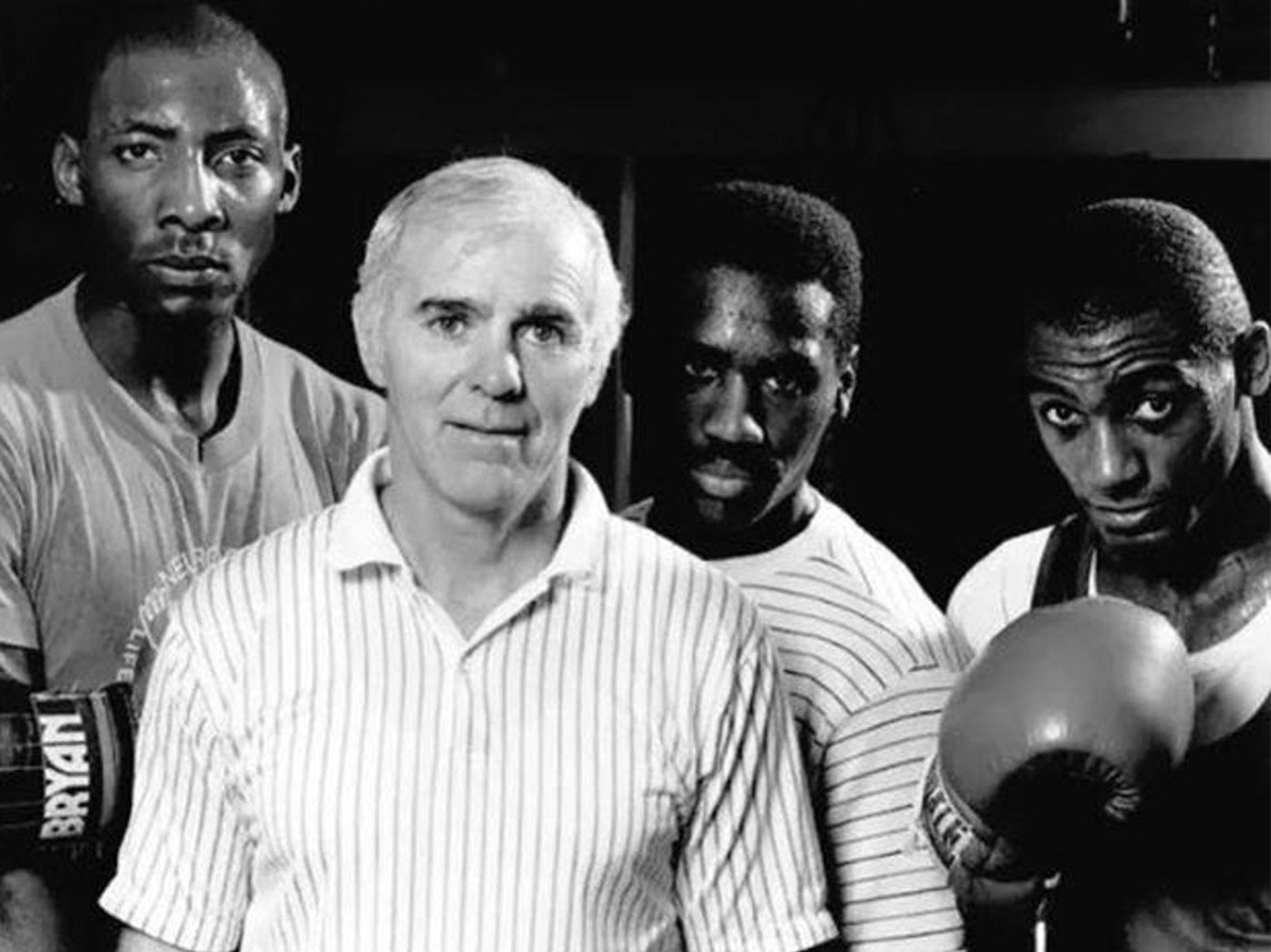
THE BRENDAN INGLE STORY - COMPETITION WINNER
'BVB writer, Paul Zanon is currently working with prisoners at HMP Thameside using the power of sports writing to help them develop into wordsmiths. We are delighted to support his efforts by donat...
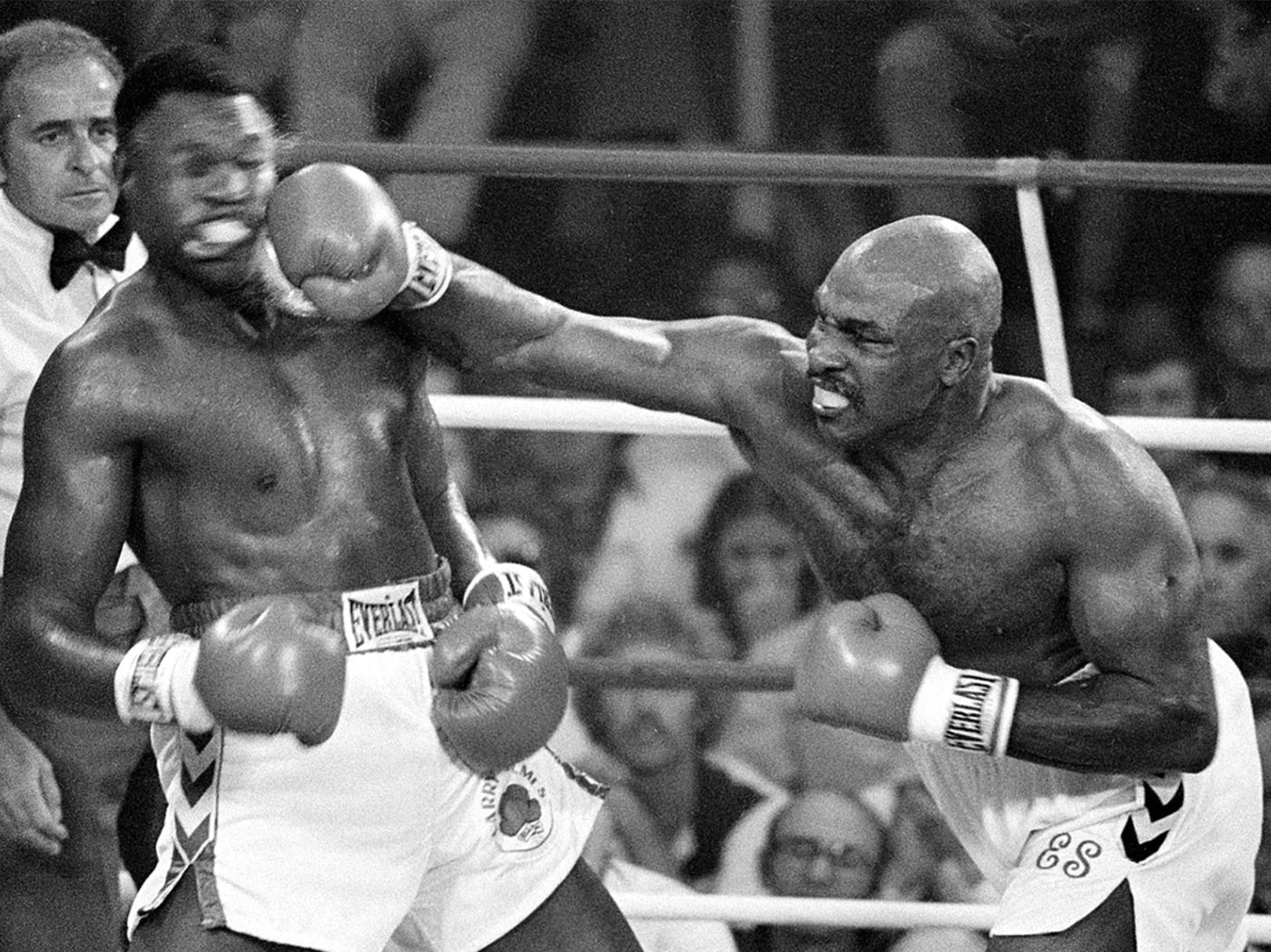
Following on from Part Two, we will now be venturing across the Big Pond to look at four of America’s finest heavyweight fighters to lace em-up, who never achieved their crowning moment in the squ...
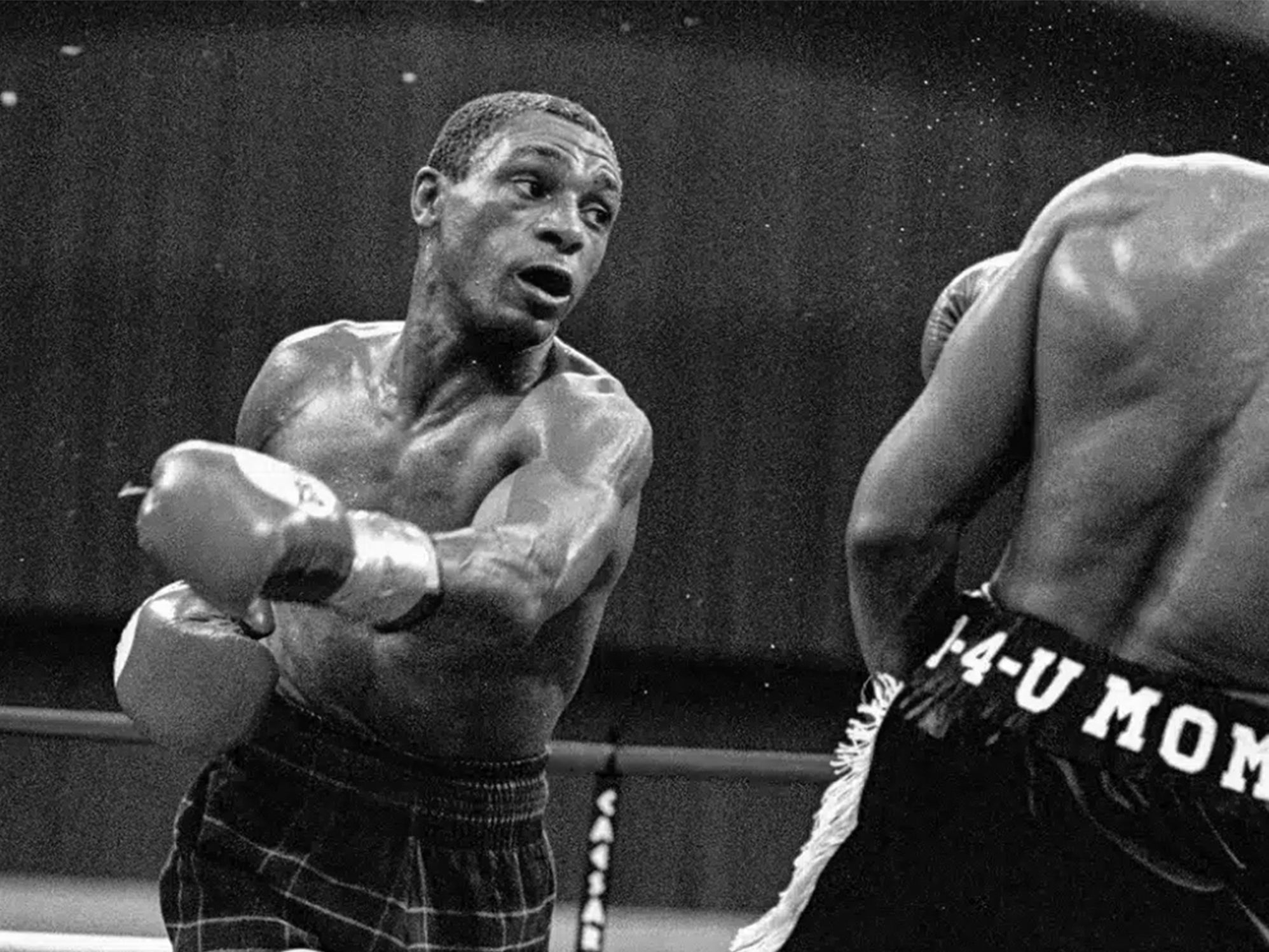
Following on from Part One, we will now be looking at a further four iconic British greats never to fully grasp a world title, albeit, not for the want of trying. TONY SIBSON Leicester born Sibson ...

